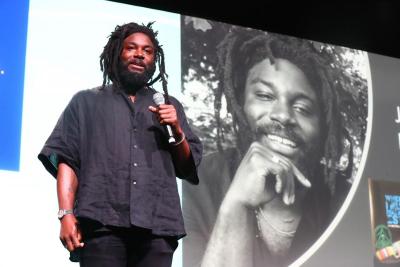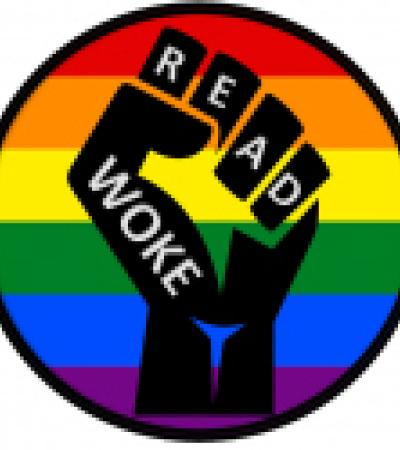The 2019 ALA Annual Conference was held in Washington D.C. from June 20 to 25. This year, we set out with the intention of sharing some of our favorite takeaways from the conference for our July blog post — and the program ideas they've inspired now that we're back home.

Terrific takeaway #1: Storytelling is key
Our whirlwind weekend started with Jason Reynolds' keynote in the auditorium. Having arrived extra early, we were able to procure seats in the second row for what soon turned out to be an amazing keynote presentation.
Mr. Reynolds took the stage and told a story in five parts. He talked about family and friendship, all the while winding the thread and theme of libraries into his talk. As he talked about his childhood friend, his mother and his experiences, he shared how he believes that people are human libraries. Think about it: all the stories we share. People hold the stories, the experiences.
George Takei, another auditorium speaker, spoke of being a young child at the time when Japanese Americans were imprisoned by the United States government in internment camps. His book, "They Called Us Enemy," is available now. During his talk he spoke about young Japanese Americans who know that their parents or grandparents were imprisoned during this horrific time in American history, but don’t know the full story.
Sonya Sotomayor — yes, the Supreme Court Justice! — spoke of her experiences when people didn’t know her whole story, the danger of making assumptions about others, and discussed her book "Just Ask." It’s due out in September. In her keynote, Justice Sotomayor made the point that when we don’t understand something, instead of continuing to not understand, we should ask, connect and tell our story.
A theme ran through all three of these keynotes: storytelling. Talking about this theme inspired us to revisit the big idea of hosting a storytelling festival. Imagine generations of people telling their own unique story. Using the Storycorps app, and providing space, this programming could be held virtually anywhere.

Terrific takeaway #2: Free resources from the Newseum
If you have read any of our blog posts, you now that we are enamored with the resources provided by the Newseum for programming on information and media literacy. At the ALA Annual Conference, we learned some new tactics for working with both students, teachers, parents and the public on how to recognize and combat fake news. The session covered how biased news is not fake news and provided strategies for programming on how to counteract the cry of fake news.
After this session we brainstormed some programming ideas around biased news and fake news. One idea: teach students and library patrons about E.S.C.A.P.E. Librarians and teachers can create free accounts at the Newseum website and download all of the lesson materials and teach about Evidence, Sources, Context, Audience, Purpose and Execution. It’s a valuable set of materials and plans. In addition, there are opportunities to provide professional development and programming to students and teachers through virtual sessions with the Newseum.
Another valuable programming idea that we brought back was the idea of a Fake Story of the Day. Why not challenge students, teachers and/or the community to put on their fact checking hats and determine if a story is real or fake. If keeping up with a fake story every day is just too much, try doing it once a week, every two weeks or on the last Friday of the month.
Terrific takeaway #3: Teaching Tolerance leveled texts and film kits
Tolerance.org has some incredible teacher resources. A part of the Southern Poverty Law Center, Teaching Tolerance provides classroom resources as well as a magazine to assist teachers and librarians with teaching about social justice. Teaching Tolerance has a free tool that will help educators of all grade levels select diverse texts.
In one session, we learned about the Teaching Tolerance leveled texts and film kits. The film kits are free for K-12 schools! Their classroom resources have much to offer: student texts, tasks, lesson plans and a lesson plan builder.
Teaching Tolerance has multiple frameworks, one of which is the Digital Literacy Framework, providing resources that support the development of digital and civic literacy skills. Teaching Tolerance’s tools and resources support the incorporation of the social justice standards into all subject areas, in every classroom. As crusaders for diversity and inclusiveness, Teaching Tolerance offers librarians an array of resources to use as we create programming to collaborate with teachers to include more culturally relevant materials into their lessons.



